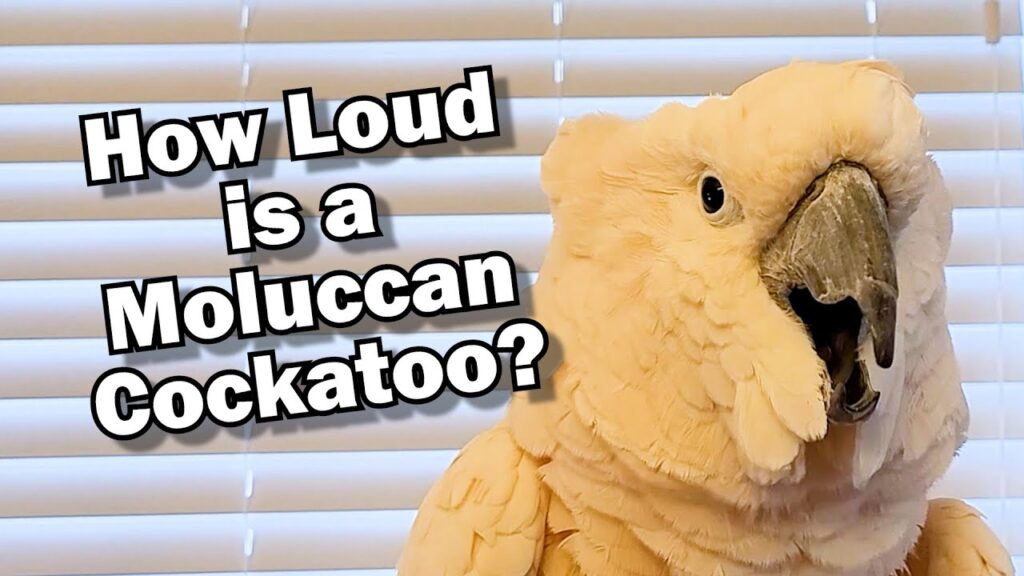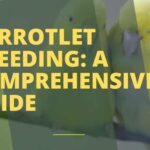Cockatoos are notoriously noisy birds, often emitting loud calls. Many owners report their significant noise levels throughout the day.
Cockatoos possess a reputation for their vibrant personalities and striking vocal abilities. These birds naturally communicate through a series of loud calls and screams that can be quite intense, especially in a home environment. Originating from the diverse habitats of Australia and nearby islands, cockatoos use their powerful voices to socialize and establish territory.
For potential bird owners, it’s crucial to understand that these feathered companions require attention and interaction to mitigate excessive noise-making. Their vocal nature serves as a charming trait for some enthusiasts, while others may find the decibels challenging. Catering to their social needs and providing ample stimulation often proves helpful in managing their vocal expressions, making them a joyous, if boisterous, addition to any bird-loving home.
Credit: www.abc.net.au
Unveiling The Sonic World Of Cockatoos
Imagine a home filled with vibrant sounds from your feathered friend, the cockatoo. These parrots are famous for their powerful vocalizations. This section explores the intensity and patterns of cockatoo calls, offering a glimpse into their noisy existence.
The Vocal Range Of These Feathered Friends
Cockatoos possess an impressive vocal range that can surprise many. With their ability to produce a spectrum of sounds, understanding their vocal prowess is essential for any potential bird owner.
- Squawks and Shrieks – Show excitement or distress
- Whistles and Calls – Attract attention or communicate with the flock
- Mimicked Sounds – Replicate noises they often hear around them
Each type of call serves a specific purpose. Understanding them can help you connect with your cockatoo on a deeper level.
Daily Chorus: Understanding Cockatoo ‘peak Hours’
Cockatoos have distinct times during the day when they are particularly vocal. This period is often known as their ‘peak hours’. Birds generally call more during specific parts of the day.
| Time of Day | Activity |
|---|---|
| Morning | Sunrise announcements, social engagement with the flock |
| Afternoon | Less noisy, routine activities |
| Evening | Settling down calls, signaling return to the nest |
Recognizing these patterns helps prepare for moments of increased noise, ensuring a harmonious living space with your cockatoo.
Decoding The Cockatoo Conversation
When it comes to birds with personality, cockatoos are top performers. But their chatty nature can leave us asking, “Are cockatoos noisy?” Let’s dive into the Decoding the Cockatoo Conversation to understand better why these birds are so vocal.
Why Do Cockatoos Scream?
Cockatoos scream for many reasons, often mimicking the high-pitched calls of their wild ancestors. It’s their way of communicating, especially when they want your attention or they’re experiencing boredom or stress. Here are some reasons they might raise their voice:
- Seeking attention: Cockatoos crave social interaction.
- Expressing needs: They might be hungry or thirsty.
- Mimicking sounds: Their environment influences them.
- Reacting to change: Any disruption can cause a ruckus.
Emotional Expression Or Calling The Flock?
Often, a cockatoo’s scream is more than just a random outburst. It’s a sophisticated form of expression. They use their voice to convey emotions or to connect with their human “flock”. Observe the following to gauge their intent:
| Behavior | Possible Reason |
|---|---|
| Consistent Screaming | Seeking attention or showing distress |
| Occasional Chirps | Happy and content |
| Loud Shrieks | May feel threatened or scared |
Understanding your cockatoo’s vocal patterns helps you respond better to their needs, ensuring a happier and healthier pet.
Comparative Noise Levels
When choosing a pet bird, volume can be a deciding factor. Cockatoos are among the loudest, but how do they really stack up in the world of parrots? This section explores the comparative noise levels of cockatoos and dives into the science behind their decibel range.
Cockatoos Vs. Other Parrots
Parrots are known for their vocalizations, but cockatoos take it to another level. Their calls pierce through the ambiance of any household. Let’s compare their noise levels:
- African Greys are chatterboxes but have a lower volume.
- Macaws, with their impressive screams, come close but are often outdone.
- Budgies and lovebirds make constant noise, yet their smaller size means less volume.
Cockatoos reign supreme in both persistence and volume, making their presence unmistakable.
Measuring Decibels: Just How Loud Can They Get?
The decibel scale measures sound intensity. Cockatoos can hit ear-splitting levels. To quantify this:
| Bird Species | Peak Decibels |
|---|---|
| Cockatoos | Up to 135 dB |
| African Grey Parrots | Up to 92 dB |
| Macaws | Up to 106 dB |
Comparatively, a rock concert clocks in at about 120 dB, stressing the remarkable power behind a cockatoo’s call.

Credit: m.youtube.com
The Influence Of Environment On Noise
Cockatoos are famous for their vibrant personalities and expressive noises. The Influence of Environment on Noise reveals how different settings can directly affect their vocal behaviors. Let’s explore how elements like captivity and social interaction impact the decibel levels of these sociable birds.
Impact Of Captivity On Noise
Living in captivity presents a unique environment for cockatoos. Unlike the wild, the limited space and human interaction can significantly shape their noisiness. Cockatoos may become louder due to:
- Boredom – Lack of stimulation can lead to repetitive calls.
- Attention-seeking behavior – They might shout to interact with their owners or react to household noises.
- Stress – Changes in their environment can cause anxiety-induced squawking.
Owners can mitigate noise by ensuring regular playtime, mental engagement, and a stable routine.
The Social Dynamics Of Cockatoos In The Wild
In their natural habitat, cockatoos exhibit a complex social structure. This influences their vocalizations, including:
| Purpose of Calls | Effect on Noise Levels |
|---|---|
| Mate Calling | Increases during mating season. |
| Flock Coordination | Constant communication to maintain flock cohesion. |
| Alarming Others | Raised alarms in response to predators or threats. |
In essence, cockatoos in the wild use noise to survive and thrive socially. Their vocal range is crucial to navigate their environment and maintain hierarchy within their group.
The Human-cockatoo Dynamic
Living with a cockatoo is like sharing your home with a small, feathered human. These birds are intelligent, emotional, and, yes, often noisy. They form deep bonds with their owners, demanding attention and interaction. Understanding their vocalizations and noise levels is key to a harmonious relationship.
Can Noise Affect Cockatoo Adoptions?
Before bringing a cockatoo into your home, consider the impact of their calls. Shelters often cite noise as a reason these birds are given up. Would-be owners must think about the noise tolerance of everyone in their household. Here are factors affecting adoption:
- Volume of the bird’s calls
- Frequency of vocalization
- Neighborhood noise rules
- Family members’ noise sensitivity
The Challenge Of Cockatoo Vocalizations For Owners
Cockatoo owners often face a learning curve. Each cockatoo has a unique set of sounds it makes. Understanding these cues can help manage the noise. Challenges include:
- Deciphering what different sounds mean
- Managing loud calls early morning or late evening
- Providing enough stimulation to avoid boredom-related noise
Training and environmental enrichment can reduce unnecessary noise. Consistent training helps cockatoos learn when it’s appropriate to be vocal.
Credit: www.abc.net.au
Mitigating The Melody
Welcome to the ‘Mitigating the Melody’ section of our post. When it comes to cockatoos, their vocal prowess is renowned. These beautiful birds can fill a space with their distinct calls. Some enjoy the natural symphony, while others seek peace. Is it possible to tone down their orchestra? The answer lies in training and environmental enrichment. Let’s explore how to harmonize your home with your feathered friend’s vocal expressiveness.
Training For Tranquility: Reducing Unwanted Noise
Training can play a key role in managing your cockatoo’s noise levels. Begin by setting a routine that includes quiet times. Use positive reinforcement to encourage quieter behavior. Reward your bird when it engages in soft chirps or calm melodies. Avoid reacting to loud squawks, as this can reinforce the behavior. Patience and consistency are the cornerstones of effective training.
- Establish a daily routine with quiet periods
- React only to soft sounds
- Consistency is essential for success
Environmental Enrichment To Curb The Clamor
Creating a stimulating environment minimizes the chances of your cockatoo developing noisy habits. Enrichment provides mental stimulation, which can reduce excessive vocalization. Consider various toys that promote problem-solving and foraging. Rotate these toys regularly to keep the environment fresh and engaging. Introducing natural perches can also mimic their wild habitat and offer comfort.
| Enrichment Type | Benefits |
|---|---|
| Puzzle Toys | Encourages Problem-Solving |
| Foraging Toys | Simulates Wild Feeding |
| Natural Perches | Offers Physical Comfort |
Introduce new items and activities to ensure your cockatoo remains curious and engaged. Music or bird sounds can also provide a peaceful backdrop that might reduce the need for your bird to call out excessively. A balance of activity and downtime promotes a tranquil environment for your cockatoo to thrive in.
Legal And Societal Aspects Of Cockatoo Noisiness
Parrots charm us with their intelligence and affection. Yet, cockatoos, a popular type of parrot, can fill a home or neighborhood with their distinct calls. Understanding the legalities and social implications of their noisiness is crucial for harmony and compliance.
Neighborly Disputes Over Noisy Birds
Cockatoo owners often face challenges within residential areas. Bird squawks can spark tension. Below are common contentious points:
- Volume and Timing: Early mornings or late nights are usual peak times for complaints.
- Duration: Repeated or long-lasting vocalizations increase friction.
- Resolving Disputes: Mediation might be necessary to find a solution.
Owners must consider mitigation techniques such as soundproofing rooms or behavioral training.
Wildlife Laws And Noise Regulations
Laws govern pet and wild bird noise levels. See below for an outline:
| Legislation | Details |
|---|---|
| Local Ordinances | Limits decibels and specific quiet times. |
| Endangered Species Act | Protects wild cockatoos, influencing pet trade and breeding. |
| Animal Welfare Acts | Ensures ethical treatment, affecting housing and care. |
Owners must research and adhere to these laws to avoid penalties and ensure responsible bird ownership.
Cockatoo Chatter: Nuisance Or Nature’s Call
Imagine a bright, feathery figure perched high atop a tree. Suddenly, a raucous call echoes through the air. This is the sound of a cockatoo, a bold and vocal bird that never fails to make its presence known. To some, this cacophony is merely a loud disruption. Yet, for others, it’s a natural expression of the avian world. Cockatoos are notorious for their boisterous vocalizations, but is their chatter just noise, or is it a vital part of their essence?
Embracing The Natural Sounds Of Cockatoos
Cockatoos communicate for many reasons. They call to their flock, express emotions, and even warn against danger. Their rich repertoire of squawks and screeches is more than just noise. It’s a language that bonds them together. Nature enthusiasts often find joy in these energetic sounds. They signal a thriving ecosystem and a sign that our feathered friends feel at home in their natural habitat.
- Vocalizations enhance social bonds within the flock.
- Screams can signal excitement or stress.
- Chatter marks territories and helps in mate selection.
The Role Of Conservation In Maintaining Natural Behaviors
As habitats shrink and change, conservation efforts become crucial. These initiatives aim to protect cockatoos and their environments. By preserving these areas, we ensure cockatoos can behave as nature intended. Their loud calls are not just tolerated, but welcomed as a sign of environmental health.
| Conservation Effort | Impact on Cockatoos |
|---|---|
| Habitat Protection | Secures living space and food resources |
| Anti-Poaching Measures | Keeps wild populations safe |
| Public Awareness | Promotes coexistence and reduces human-wildlife conflict |
These actions allow cockatoos to continue their natural vocal behavior without the risks posed by human activities.
Conclusion
Cockatoos certainly bring life to any home with their remarkable vocalizations. These sociable birds express joy, excitement, or even boredom through noise. Prospective owners must consider their environment and lifestyle before welcoming a cockatoo. Adequate attention and stimulation may help manage their loud calls.
Remember, a happy cockatoo tends to be a quieter companion.
Ryan Everhart is a passionate bird enthusiast and blogger, primarily writing on his website, Avian Whispers. His journey into the world of bird blogging began with a deep interest in parrots, a species that captivated his attention for their intelligence and social behavior. Over time, his content expanded to cover a broader range of bird species, offering insights into bird behavior, care, habitats, and conservation.
Ryan is dedicated to educating his audience, which includes both new bird owners and seasoned enthusiasts. His writing is filled with personal experiences, expert knowledge, and practical advice on bird care. Through Avian Whispers, he aims to foster a deeper appreciation for birds, emphasizing their role in nature and the joys of having them as pets.
Starting with articles focused on parrots, Ryan’s work now encompasses a diverse range of topics such as feeding, training, habitat enrichment, and bird health. His love for birds extends beyond parrots, diving into various avian species. His informative and heartfelt writing reflects his commitment to the well-being of birds and the desire to help others connect with these creatures.
As a growing voice in the bird blogging community, Ryan strives to provide a platform where bird lovers can learn, share experiences, and connect over a shared passion for avian life. His blogs are not only educational but also serve as a reminder of the importance of protecting and nurturing the bond between humans and birds.




